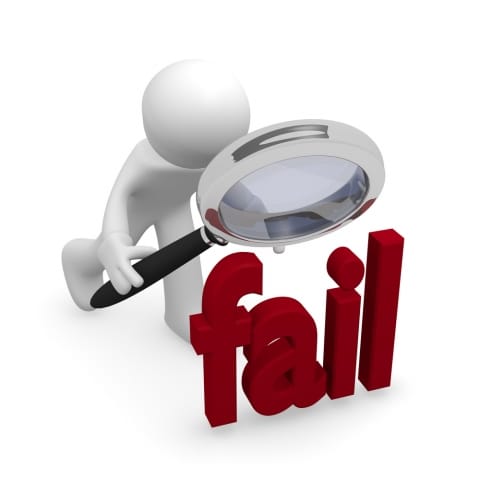Since the beginning of the shale gas rush, the drilling industry has insisted that the process is relatively benign, arguing that its critics are simply fear-mongering and that a sober scientific review of the data fails to prove, for instance, that fracking has ever contaminated water supplies.
In the wake of New York Governor Andrew Cuomo’s decision to disallow fracking in that state, for example, one of the most active boosters of the shale drilling rush, the industry-funded Energy in Depth, issued a statement labeling the ban “’Junk Science’ and ‘Political Theater.”
In the wake of news reports, academic publications, or policy decisions that it opposes, Energy in Depth often circulates lists of sources that it describes as debunking “junk science.” But how reliable is the science that EID cites?
A report issued today by the Public Accountability Initiative (PAI) reviews a list of over 130 studies cited by Energy in Depth (EID), testing its sources for markers of credibility.
How often was the research cited peer-reviewed? Was it accurately labeled? Was the research funded by the oil and gas industry, and if so, was that funding properly disclosed or was it concealed? Were any of the papers cited revoked or rescinded?
The answers, found in the report titled “Frackademia in Depth,” are striking.
“Of the 137 unique studies on EID‘s list that could be located, only 19 were peer-reviewed,” the PAI writes. “This suggests that there is a significant shortage of serious scholarly research supporting the case for fracking.”
In some cases, EID cited studies that had falsely claimed to be peer reviewed but were exposed or were later retracted. One paper, cited three times by EID, ” was published in a prestigious journal, Proceedings of the National Academy of Sciences, which published a correction after several authors failed to disclose significant financial conflicts of interest,” PAI noted. In other cases, documents were labeled “studies,” but turned out to be less rigorous documents, like PowerPoint presentations, a blog post and a press release.
A large number of studies cited – 56 of the 137 documents listed – were “funded or authored by industry sources,” and another 35 were put out by “organizations with oil and gas funding or by consultants or banks tied to the industry,” the PAI found.
All told, of the 19 peer-reviewed papers cited by EID, less than half had no identified connection to the oil and gas industry, the PAI concluded. “Of the studies that were peer-reviewed, ten were tied to the industry – four with strong ties, two with medium ties, and another four with weak ties,” the researchers wrote.
It’s not for lack of available research.
For the past several years, there’s been a sharp increase in the amount of peer-reviewed research into fracking’s potential harms. “The pace at which new studies and information are emerging has rapidly accelerated in the past year and a half,” Concerned Health Professionals of New York, which compiles fracking research on its website, notes, “the first few months of 2014 saw more studies published on the health effects of fracking than all studies published in 2011 and 2012 combined.”
Another compilation of peer-reviewed research, put together by Physicians, Scientists and Engineers for Health Energy, lists over 400 scientific papers related to fracking.
At the same time, scientists who investigate the negative impacts of fracking often find themselves under enormous scrutiny. In a February 6, 2015 article, “Fracking Researchers Under Pressure,” the Chronicle of Higher Education describes the highly charged atmosphere in which researchers must operate.
“No scientist can go far in fracking without encountering Energy in Depth,” the Chronicle reports. “The website, financed by the Independent Petroleum Association of America, works like a hyperactive immune system, chasing down even minor threats.”
Nonetheless, a growing body of research – both peer-reviewed and otherwise – has called into question the merits of the shale gas rush.
To be sure, the list of studies circulated by EID and examined by PAI is not definitive or all-inclusive, though PAI argues that it is generally characteristic of evidence cited by EID and other shale industry groups.
“Range Resources submitted the list to the Allegheny County government in April 2014 as it was considering whether to lease mineral rights in its Deer Lakes Park to the company,” PAI said in its report. “The list resembles several other lists compiled by EIDPAI analyzed the Allegheny County version because it was used in the context of a policy proceeding.”
Energy In Depth has long served as a mouthpiece for the shale industry. “With the support of IPAA‘s 10,000 members, representing 95% of the industry, and API‘s 600 members, EID‘s claims are arguably a representation of the gas industry’s position as a whole,” PAI says in their report.
In 2011, DeSmog revealed a 2009 Independent Petroleum Association of America (IPPA) memo that described EID‘s purpose as “to combat new environmental regulations, especially with regard to hydraulic fracturing.”
Judging by the evidence EID cited on its list, that job may become increasingly difficult.
“The data suggests that even when the industry searches far and wide for studies to make its case,” PAI concluded, “it ultimately must rely heavily on studies that are marred by conflicts of interest and lacking in academic rigor.”
“Policymakers should be wary of the research pushed by the oil and gas industry, which is often closer to public relations than to actual science,” concludes PAI research analyst and report co-author Robert Galbraith.
Photo Credit: “3d man with a magnifying glass searching a fail”, via Shutterstock
Subscribe to our newsletter
Stay up to date with DeSmog news and alerts






